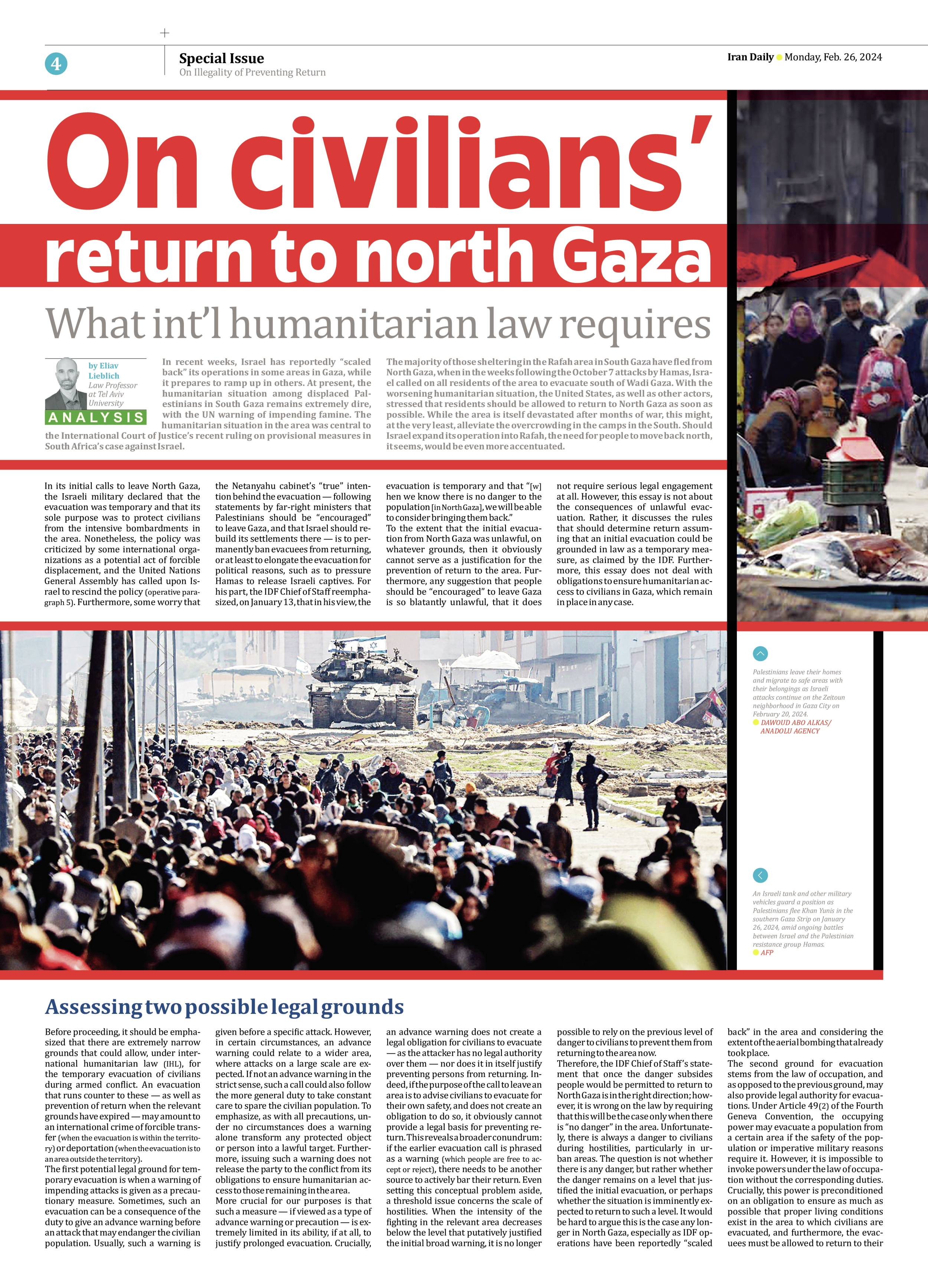
On civilians’ return to north Gaza
What int’l humanitarian law requires
In recent weeks, Israel has reportedly “scaled back” its operations in some areas in Gaza, while it prepares to ramp up in others. At present, the humanitarian situation among displaced Palestinians in South Gaza remains extremely dire, with the UN warning of impending famine. The humanitarian situation in the area was central to the International Court of Justice’s recent ruling on provisional measures in South Africa’s case against Israel. The majority of those sheltering in the Rafah area in South Gaza have fled from North Gaza, when in the weeks following the October 7 attacks by Hamas, Israel called on all residents of the area to evacuate south of Wadi Gaza. With the worsening humanitarian situation, the United States, as well as other actors, stressed that residents should be allowed to return to North Gaza as soon as possible. While the area is itself devastated after months of war, this might, at the very least, alleviate the overcrowding in the camps in the South. Should Israel expand its operation into Rafah, the need for people to move back north, it seems, would be even more accentuated.
by Eliav
Lieblich
Law Professor at Tel Aviv University
In its initial calls to leave North Gaza, the Israeli military declared that the evacuation was temporary and that its sole purpose was to protect civilians from the intensive bombardments in the area. Nonetheless, the policy was criticized by some international organizations as a potential act of forcible displacement, and the United Nations General Assembly has called upon Israel to rescind the policy (operative paragraph 5). Furthermore, some worry that the Netanyahu cabinet’s “true” intention behind the evacuation — following statements by far-right ministers that Palestinians should be “encouraged” to leave Gaza, and that Israel should rebuild its settlements there — is to permanently ban evacuees from returning, or at least to elongate the evacuation for political reasons, such as to pressure Hamas to release Israeli captives. For his part, the IDF Chief of Staff reemphasized, on January 13, that in his view, the evacuation is temporary and that “[w]hen we know there is no danger to the population [in North Gaza], we will be able to consider bringing them back.”
To the extent that the initial evacuation from North Gaza was unlawful, on whatever grounds, then it obviously cannot serve as a justification for the prevention of return to the area. Furthermore, any suggestion that people should be “encouraged” to leave Gaza is so blatantly unlawful, that it does not require serious legal engagement at all. However, this essay is not about the consequences of unlawful evacuation. Rather, it discusses the rules that should determine return assuming that an initial evacuation could be grounded in law as a temporary measure, as claimed by the IDF. Furthermore, this essay does not deal with obligations to ensure humanitarian access to civilians in Gaza, which remain in place in any case.







